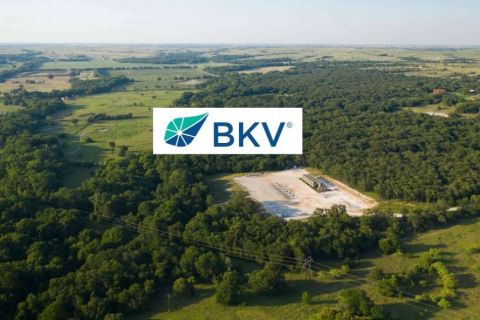According to the Arkansas News Bureau,evidence of environmental contamination has been discovered at 11 permitted “land farms” where water used in natural gas drilling is stored, the Arkansas state Department of Environmental Quality says.
At each of the sites, ADEQ found that contaminated fluids had run off into nearby creeks or streams and chloride concentrations in surrounding soil were abnormally high, according to a release. Four of the 11 sites are in the Fayetteville shale formation in north and central Arkansas where natural gas drilling has increased substantially in the past few years. The other seven are in the older Arkoma Basin in western Arkansas.
ADEQ Director Teresa Marks says the permit revocation process has begun on land farms in White and Lonoke counties—both are in the Fayetteville shale play area and are owned by Fayetteville shale Land Farm. Other revocations could be forthcoming at other locations.
Marks, who stopped the awarding of new permits for drill-water storage facilities and ordered the study in November after repeated permit violations at some of the sites, says that changes have already been made to all existing and new permits. Some of the changes include adding fencing around all on-site ponds to protect wildlife from getting into the water, and requiring that routine soil and water sampling be conducted at specified locations in the presence of an ADEQ inspector.
Until now, owners of the land farms conducted their own sampling and then sent the water and soil to certified labs for testing, Marks says, adding that the department plans to hire four inspectors, a supervisor and enforcement administrator to help with the testing. The ADEQ director says she hopes the new regulations don’t slow natural gas drilling, which has been an economic boon to the state.
"The bottom line is we’re concerned about the environmental effects of these operations and we have to put those environmental effects first,” she says. “We want to make sure that when the drilling is over that there is not any damage to our environment.”
“The results of the study have caused us to put additional measures in place to ensure that these facilities are complying with the terms of their permits and are not causing harm to the soils and waters of the state,” says Marks.
The two other land farms located within the Fayetteville shale play area where contaminated water was discovered are in Conway and Yell counties. The land farms in the Arkoma Basin where environmental problems were found include four in Sebastian County, two in Franklin County and one in Johnson County.
Recommended Reading
Cibolo Energy Closes Fund Aimed at Upstream, Midstream Growth
2024-09-10 - Cibolo Energy Management LLC closed its second fund, Cibolo Energy Partners II LP, meant to boost middle market upstream and midstream companies’ growth with development capital.
New Fortress Makes Headway on $2.7B Debt Refinancing
2024-11-26 - New Fortress Energy Inc. anticipates raising approximately $325 million in gross proceeds through the refinancing.
Matador Offers $750 Million in Senior Notes Following Ameredev Deal
2024-09-20 - Matador Resources will offer $750 million in senior notes following the close of its $1.83 billion Ameredev II acquisition.
BKV Prices IPO at $270MM Nearly Two Years After First Filing
2024-09-25 - BKV Corp. priced its common shares at $18 each after and will begin trading on Sept. 26, about two years after the Denver company first filed for an IPO.
ONEOK Offers $7B in Notes to Fund EnLink, Medallion Midstream Deals
2024-09-11 - ONEOK intends to use the proceeds to fund its previously announced acquisition of Global Infrastructure Partners’ interest in midstream companies EnLink and Medallion.





